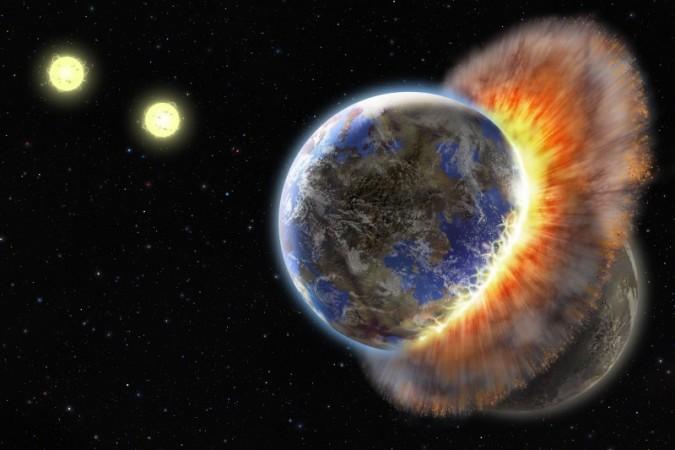
Several studies have already confirmed that Uranus is a unique planet in the solar system, and it often behaves bizarre way when compared to its planetary peers. Back in July, scientists have realized that Uranus' rotation style is very weird, it spins at a nearly 90-degree angle to the other planets in the solar system. After this finding, scientists speculated that a gigantic impact might have resulted in this creepy behavior.
Now, a team of researchers from the United Kingdom has added fuel to this collision theory, and they have even released the simulation of what would have happened after a space body twice the size of earth hit Uranus in its full fury.
"Most of the material from the impactor's rocky core falls into the core of the target. However, for higher angular momentum impacts, significant amounts become embedded anisotropically as lumps in the ice layer. Furthermore, most of the impactor's ice and energy is deposited in a hot, high-entropy shell at a radius of 3 R," wrote the researchers in the study report.
Researchers also believe that this giant collision might have happened millions of years ago, much before the planet's moon had taken shape.
The simulation released by the scientists have triggered a debate, especially among conspiracy theorists. Some conspiracy theorists believe that earth will also face a similar fate in the future due to a potential collision with a rogue space body called 'Planet Nine' or 'Planet X'.
These conspiracy theorists strongly believe that a powerful collision with Planet X will be cataclysmic, and it will result in an apocalypse on earth. However, until now, scientists have not found substantial pieces of evudence to prove the existence of Planet Nine. But recently, a team of space experts hypothesized the existence of a ninth planet beyond Neptune, and they argued that this rogue space body is invisible to our current observatories.
Michael Brown, a space scientist at the California Institute of Technology also claimed that the mysterious Planet Nine will be eventually discovered in the future.

















